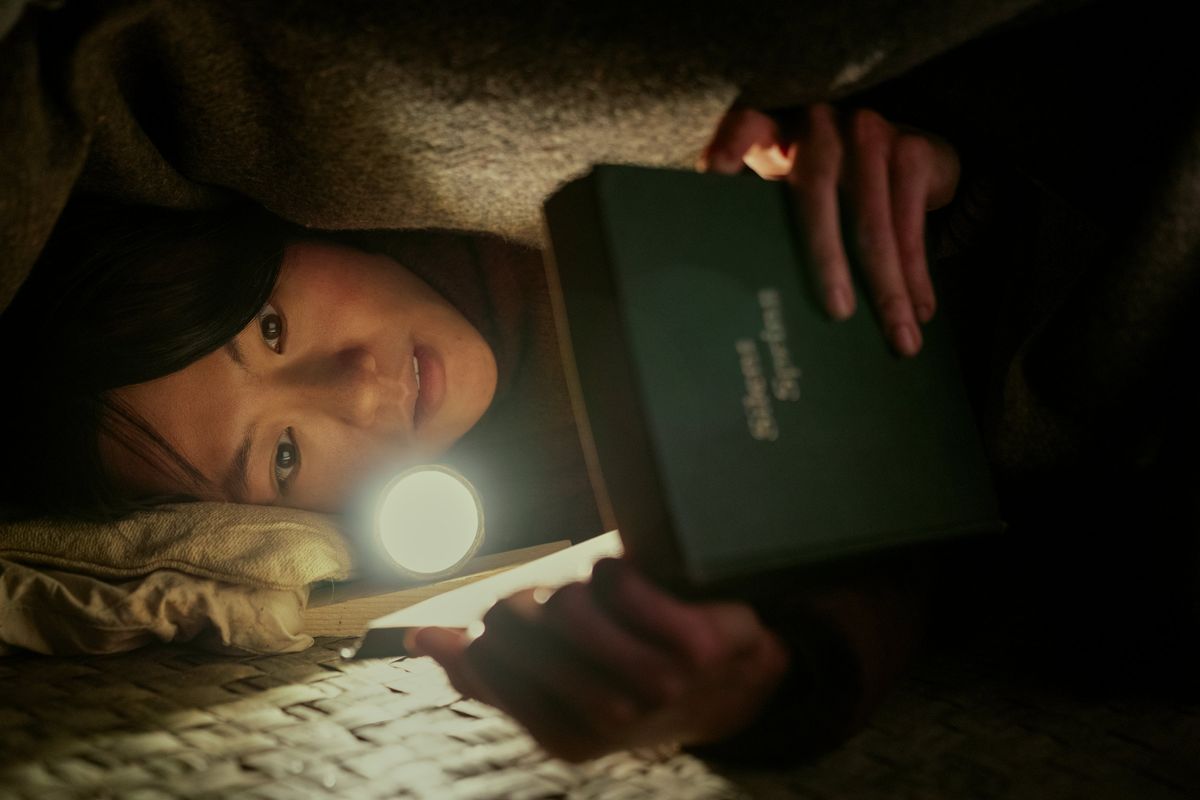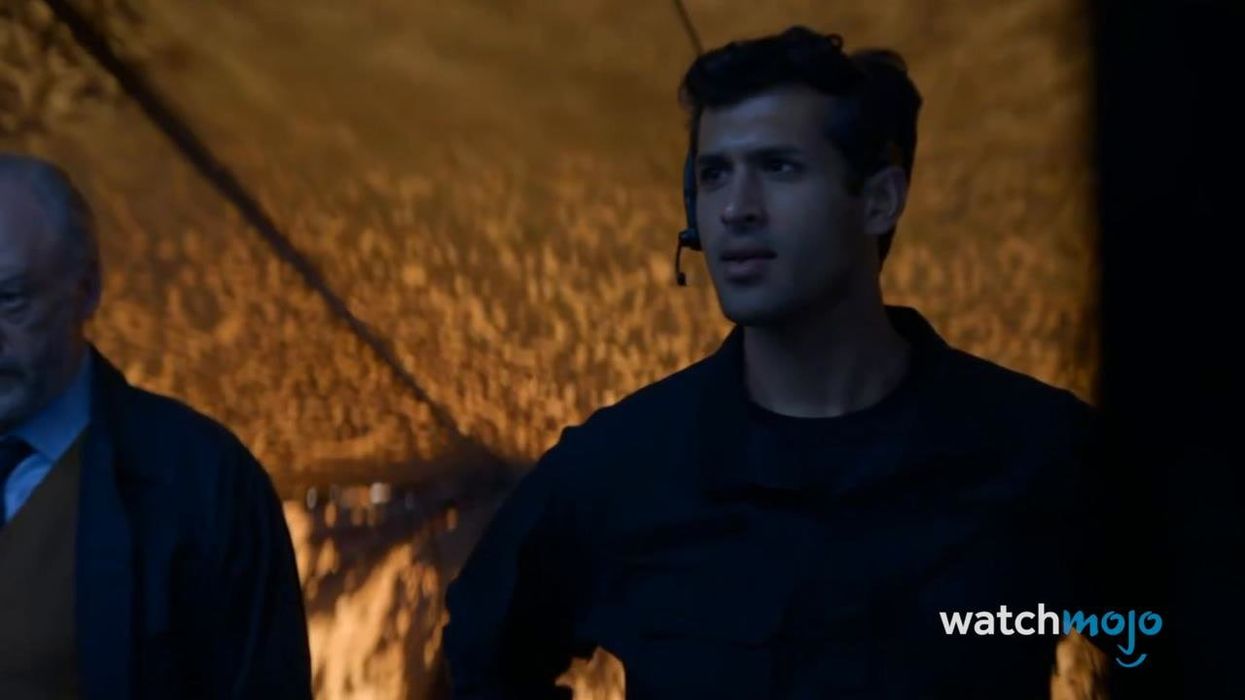Science & Tech
Harriet Brewis
Apr 09, 2024
Top 10 True Science in 3 Body Problem Explained
WatchMojo / VideoElephant
Those of us who are interested in the possibility of life beyond our world will be well acquainted with the so-called Fermi Paradox.
The idea, argued by physicist Enrico Fermi in the 1950s, centres on the contradiction between the ostensibly high likelihood that extraterrestrial life exists, and the lack of concrete evidence that it does.
The paradox focuses largely on two questions, according to the Encyclopedia Britannica: Why has Earth not already been visited by aliens? And why is there still no proof of extraterrestrial intelligence?
After all, our world is around 4.5 billion years old, life here is at least 3.5 billion years old and, given the scale of the universe, conditions conducive to life should have arisen numerous times elsewhere in the cosmos.
And yet… Nothing. Not so much as an “E.T. phone home.” So what’s going on?
It’s a question that Netflix’s new smash-hit, 3 Body Problem, attempts to answer, as Tony Milligan, of King’s College London, explained in a piece for The Conversation.
He notes that in the first episode of the sci-fi series, the character Ye Wenjie, who works at a radio observatory, receives a message from a member of an alien civilisation.
They tell her that they are a pacifist but warn her that if she responds to the message Earth will be attacked.

Viewers who are impatient to learn more about the collision between these two worlds don’t have to wait for the release of season 2.
Rather, they can turn to the trilogy of novels on which the series is based: ‘Remembrance of Earth's Past’ by the Chinese author Liu Cixin.
In the second of these books, titled ‘The Dark Forest’, Cixin attempts to “solve” the Fermi paradox by way of the following suggestion: “The universe is a dark forest. Every civilisation is an armed hunter stalking through the trees like a ghost, gently pushing aside branches that block the path and trying to tread without sound.”
Put simply, everyone is hiding from one another.
However, this is no game, Cixin warns.
As Milligan puts it: “Differential rates of technological progress make an ongoing balance of power impossible, leaving the most rapidly progressing civilisations in a position to wipe out anyone else.
“In this ever-threatening environment, those who play the survival game best are the ones who survive longest.
“We have joined a game which has been going on before our arrival, and the strategy that everyone has learned is to hide.
“Nobody who knows the game will be foolish enough to contact anyone – or to respond to a message.”

Nevertheless, Cixin is not actually saying that our universe is a dark forest, merely that such a universe is possible in the worst-case scenario.
And, indeed, his books have got scientists thinking and even guiding their approach to potential alien threats.
As Milligan notes, in 2020 the prominent astrobiologists Kelly Smith and John Traphagan proposed a new protocol for any potential first contact.
“First, do nothing,” they advised, because doing something could lead to disaster.
In the event of extraterrestrial contact, we should avoid doing anything that might offer information on who we are, the pair argue.
According to Milligan, they suggest: “Defensive behaviour would show our familiarity with conflict, so that would not be a good idea. Returning messages would give away the location of Earth – also a bad idea.”
The King’s College professor suggests: “Again, the Smith and Traphagan thought is not that the dark forest theory is correct. Benevolent aliens really could be out there. The thought is simply that first contact would involve a high civilisation-level risk.”
And yet, Milligan insists, the dark forest theory is “almost certainly wrong”.
“Or at least, it is wrong in our universe,” he explains.
“It sets up a scenario in which there is a Darwinian process of natural selection, a competition for survival.”
He goes on: “Charles Darwin’s account of competition for survival is evidence-based. By contrast, we have absolutely no evidence about alien behaviour, or about competition within or between other civilisations.
“This makes for entertaining guesswork rather than good science, even if we accept the idea that natural selection could operate at group level, at the level of civilisations.
“Even if you were to assume the universe did operate in accordance with Darwinian evolution, the argument is questionable. No actual forest is like the dark one. They are noisy places where co-evolution occurs.”

He goes on to emphasise that creatures are mutually dependent on one another and that, to quote Rachel Carson’s 1962 environmental science book ‘Silent Spring’: “In nature, nothing exists alone”.
Indeed, this quote is borrowed, and repeated, by Cixin in his trilogy – and by Netflix in their adaptation – as a counterpoint to the dark forest theory.
It is, Milligan suggests, in Cixin’s story “used to explain why some humans immediately go over to the side of the aliens, and why the urge to make contact is so strong, in spite of all the risks”.
“Ye Wenjie ultimately replies to the alien warning,” he notes.
And so, is the dark forest theory really a plausible explanation for the Fermi Paradox?
Milligan thinks not.
He concludes: “The fact that we do not hear anyone is just as likely to indicate that they are too far off, or we are listening in all the wrong ways, or else that there is no forest and nothing else to be heard.”
Sign up for our free Indy100 weekly newsletter
Have your say in our news democracy. Click the upvote icon at the top of the page to help raise this article through the indy100 rankings
Top 100
The Conversation (0)














